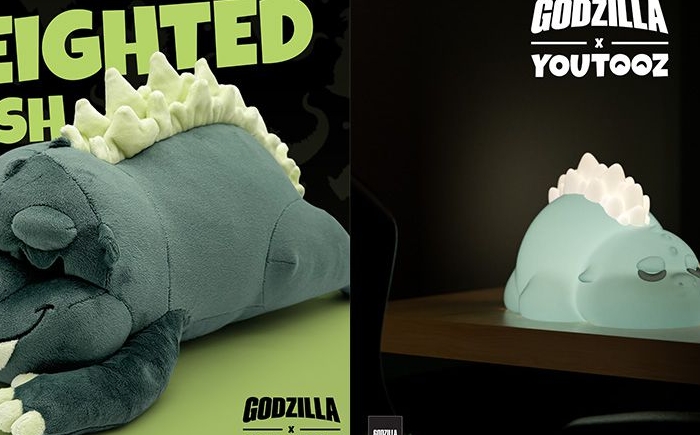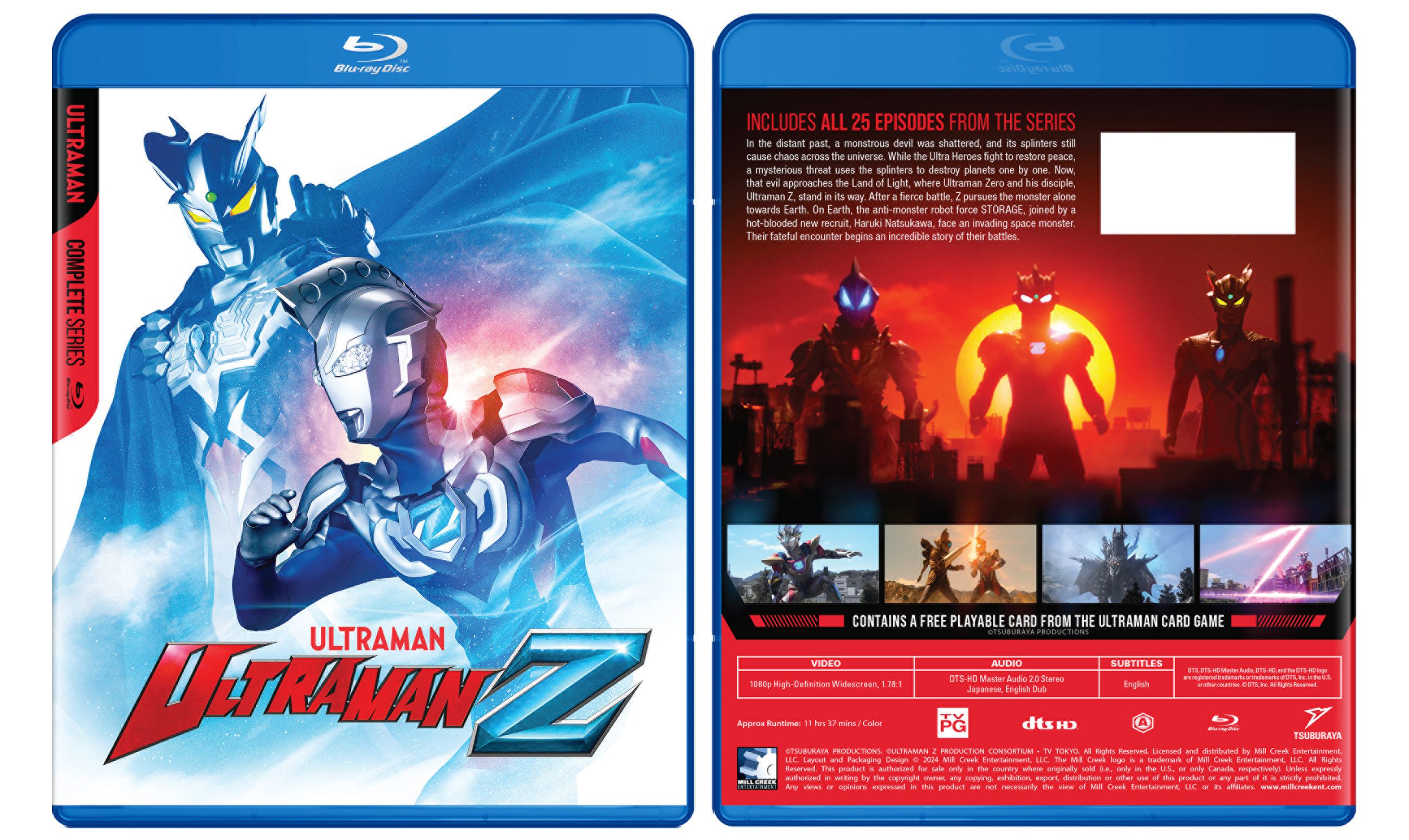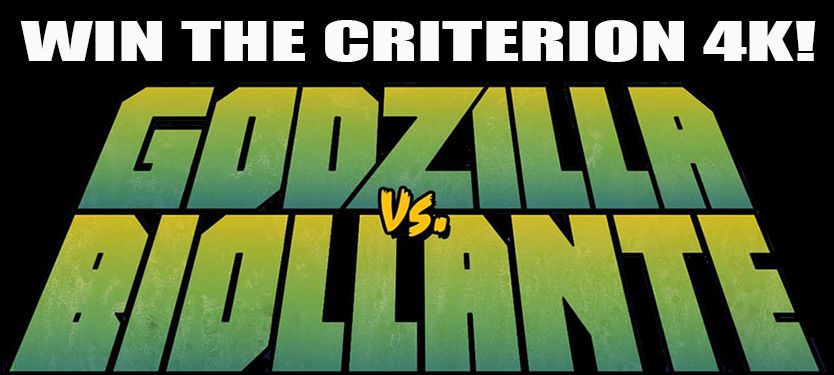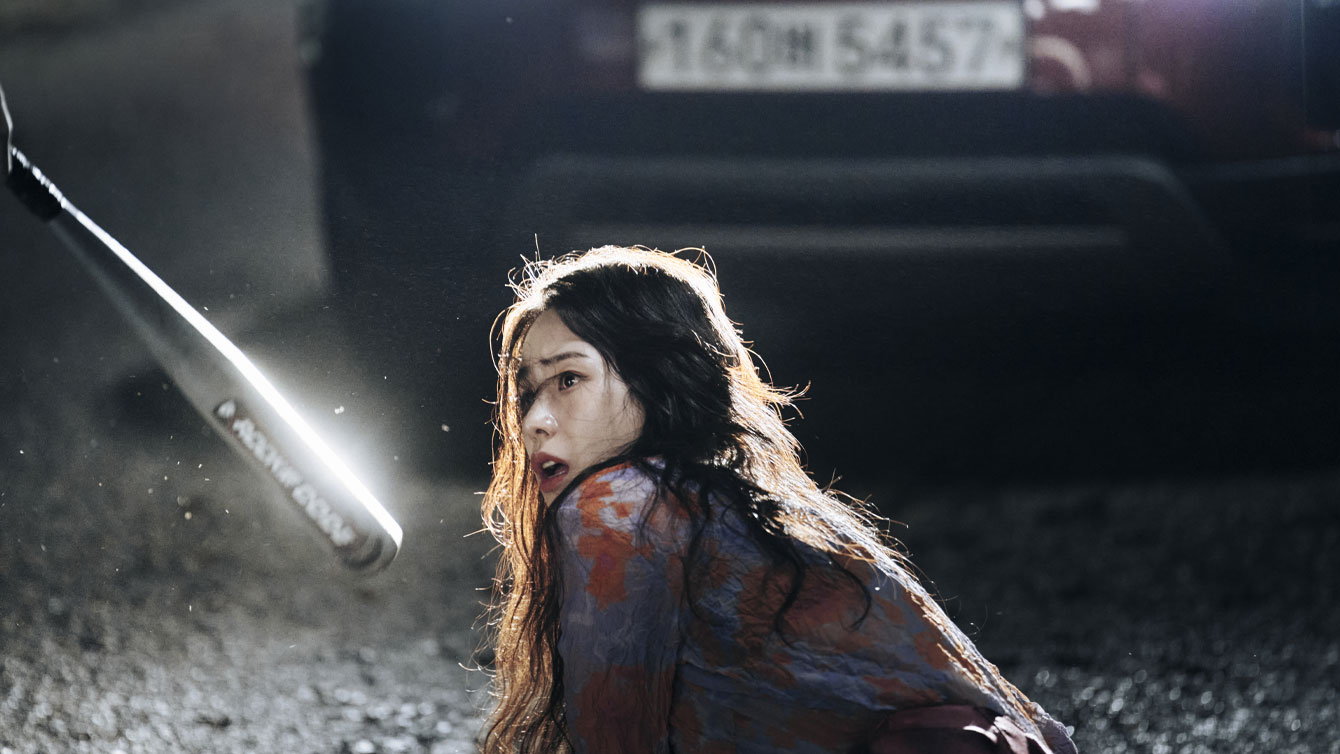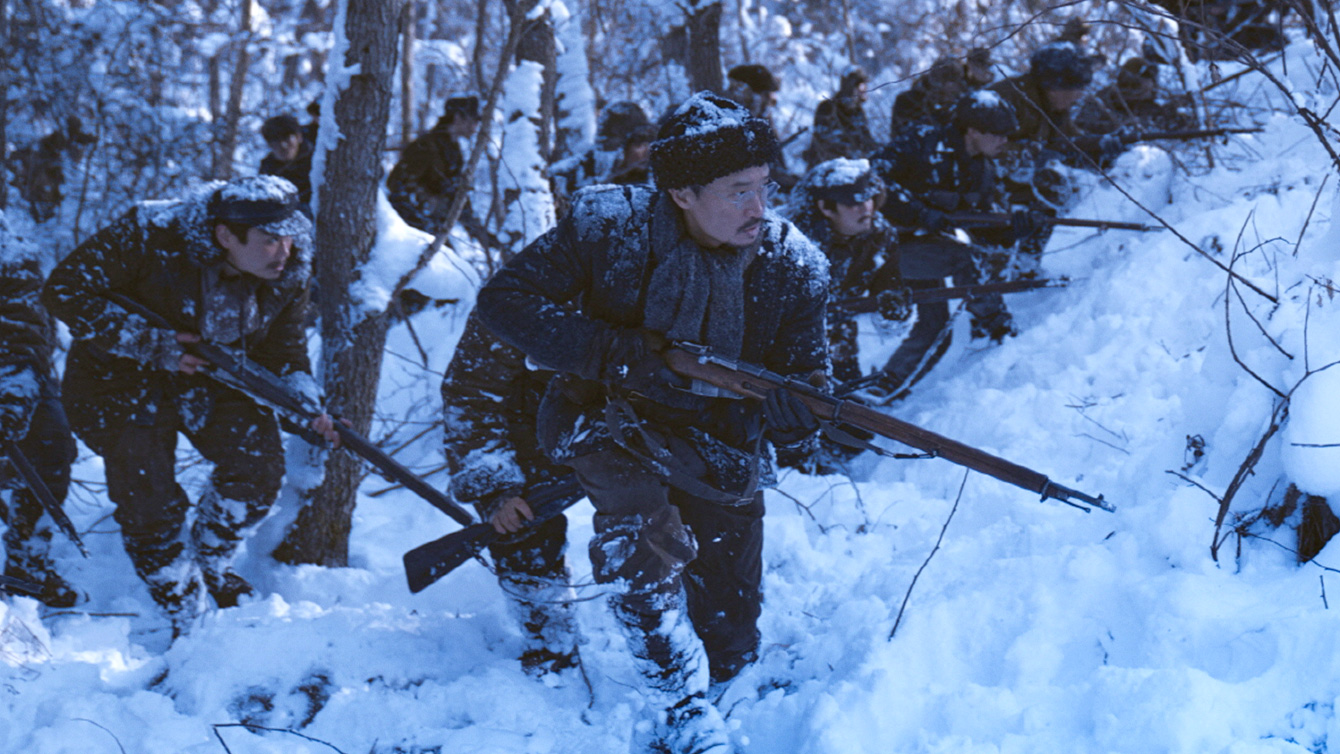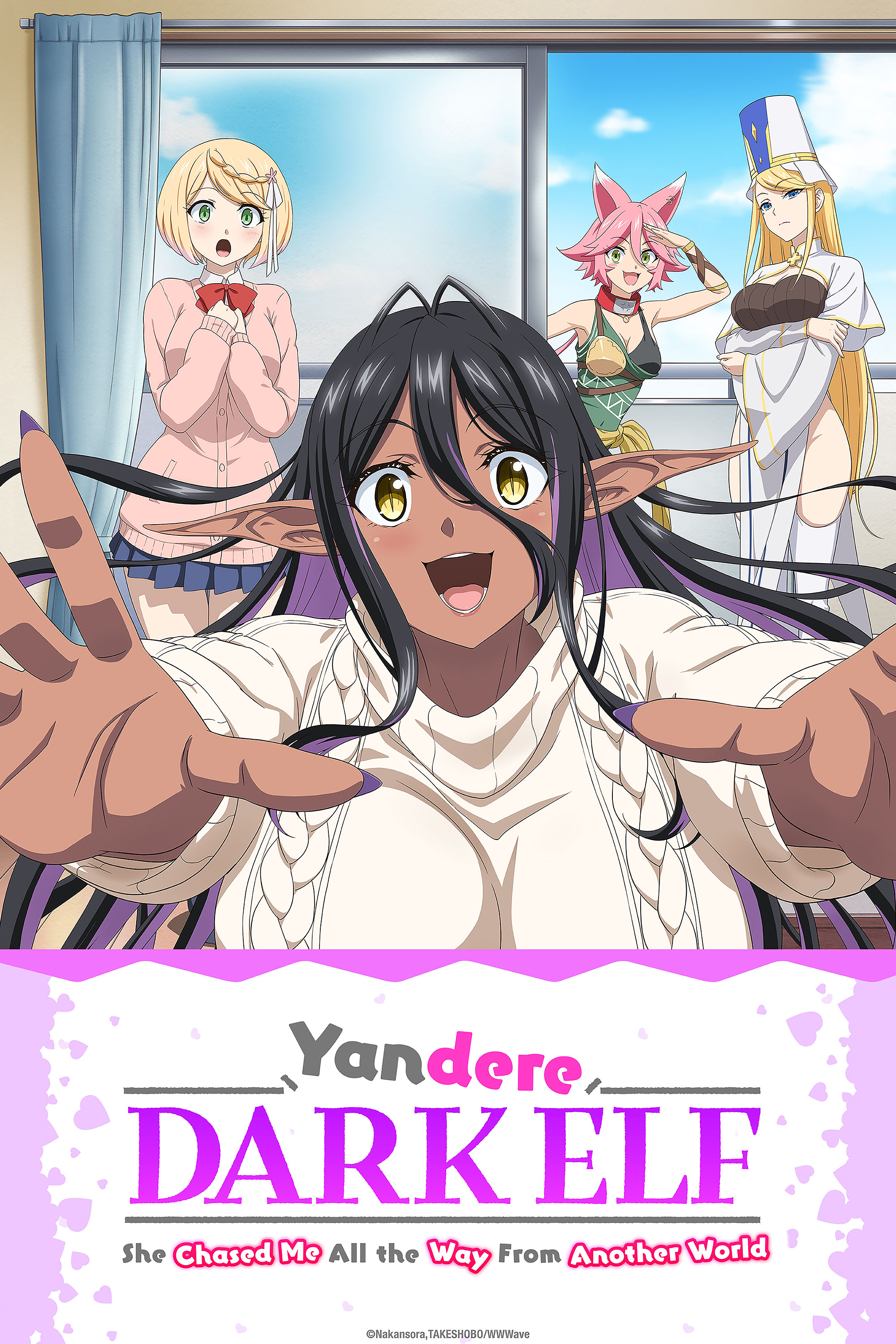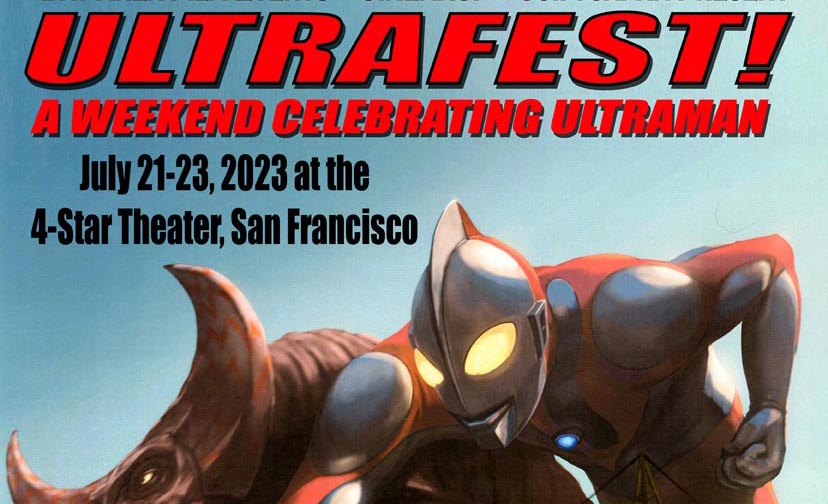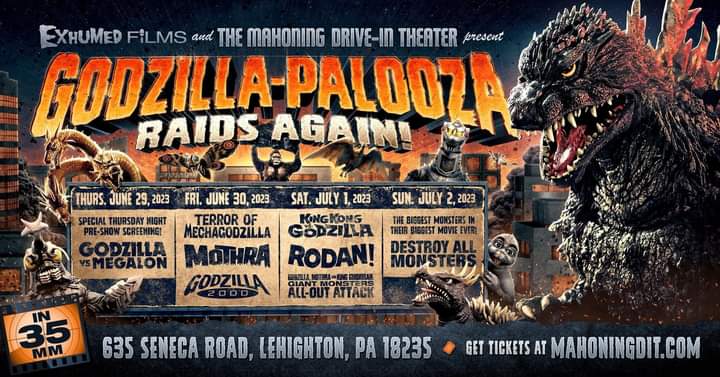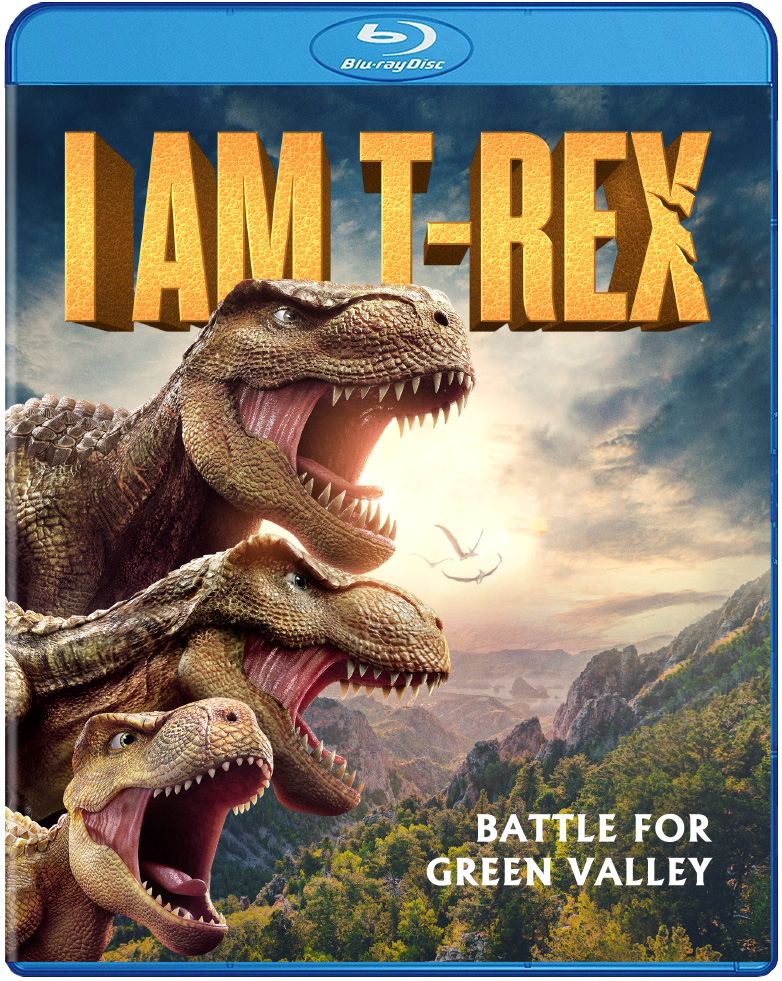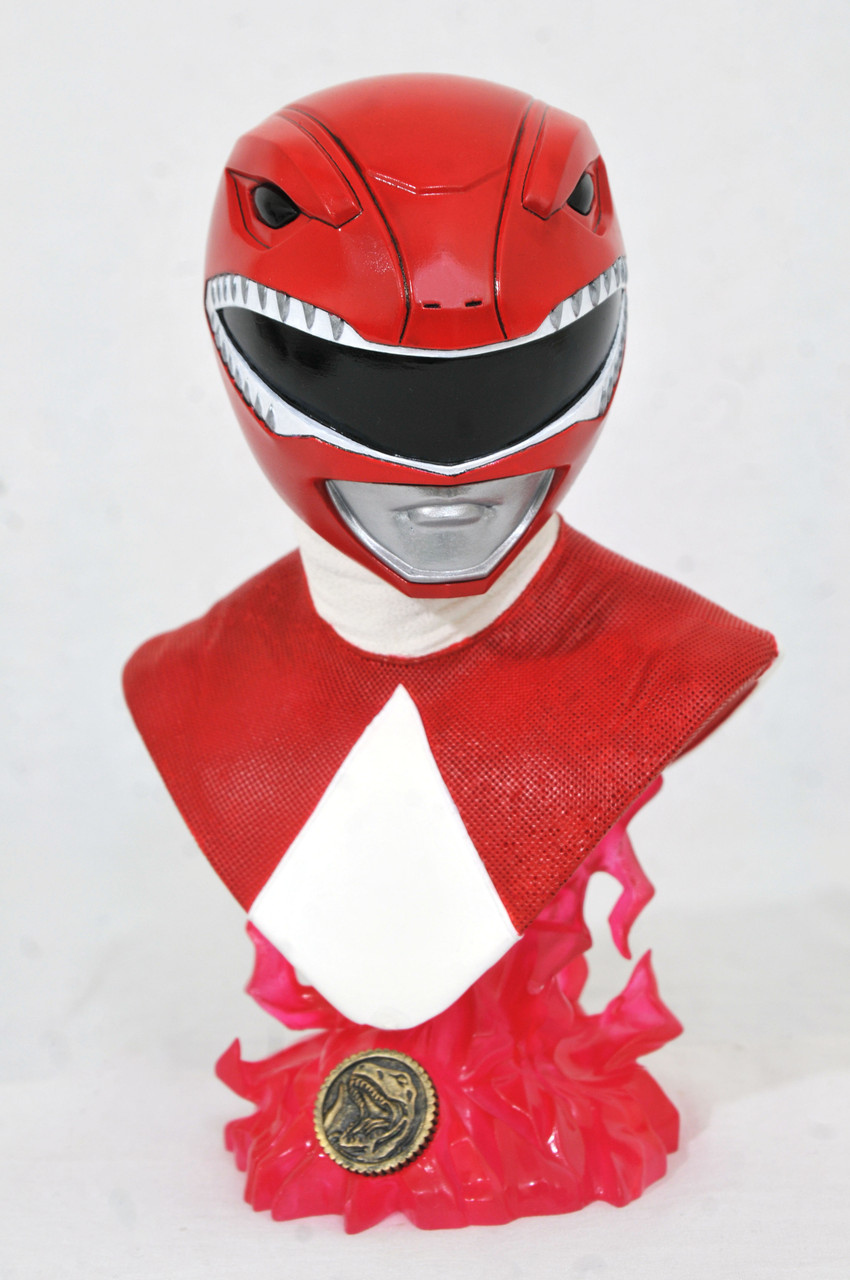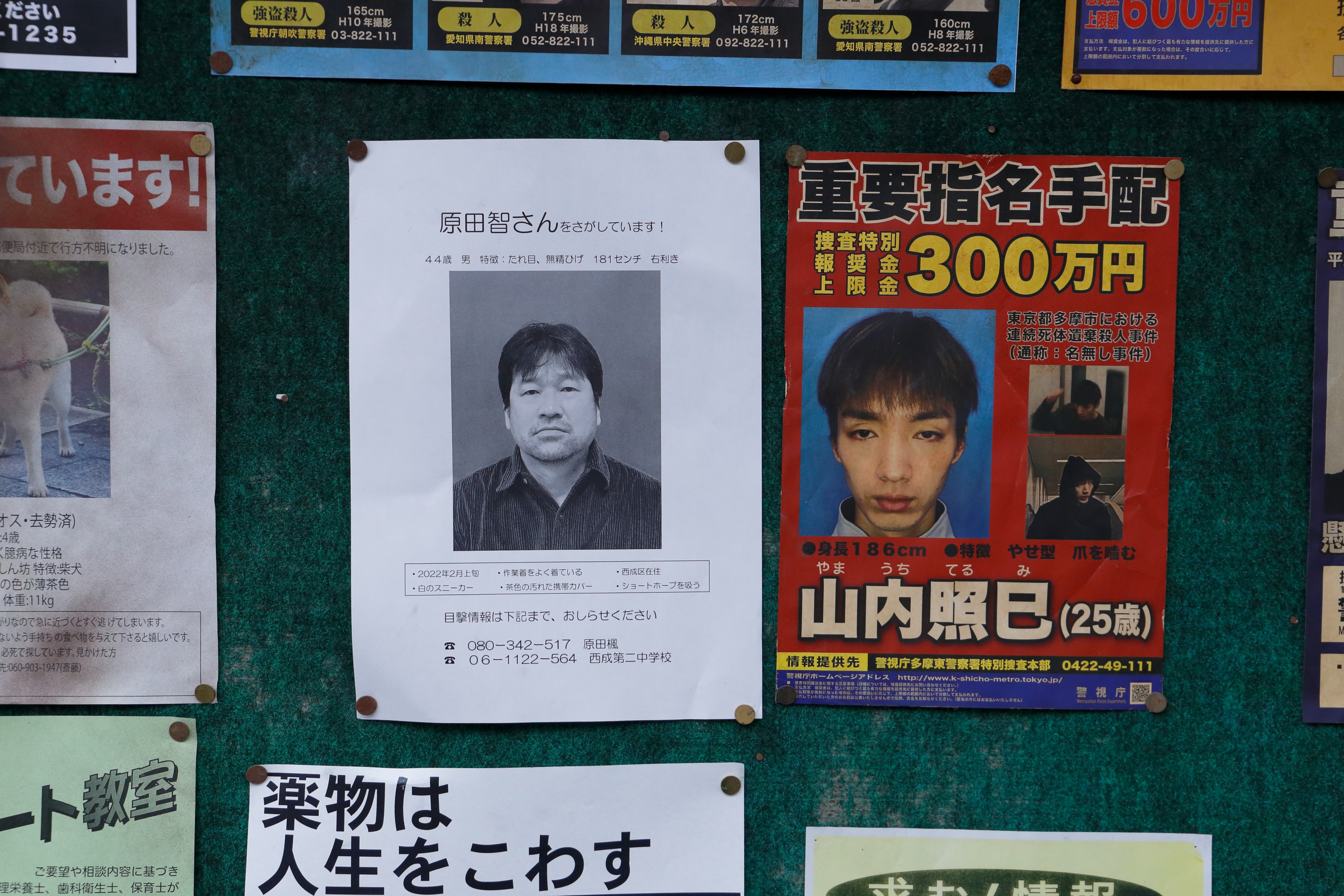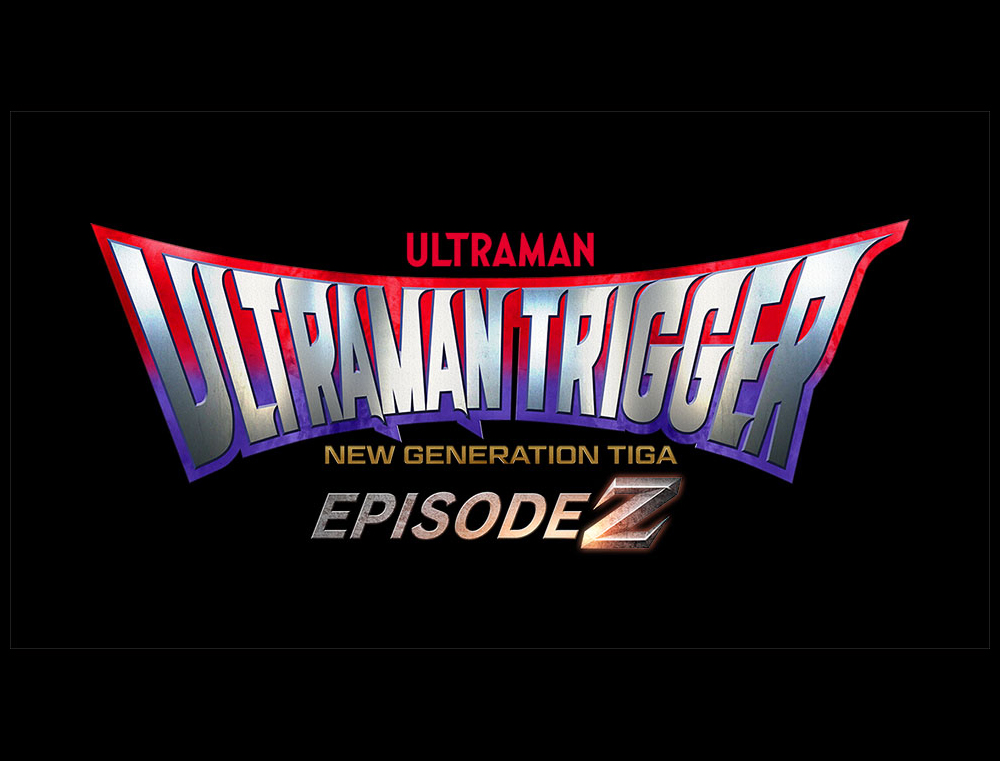Source: Twentieth Century Fox Film Corporation, Twentieth Century Fox Japan Official Site: projectprometheus.com
SPOILER WARNING: This article contains plot details and images from a new movie.
Sir Ridley Scott, the renowned filmmaker who reinvented the science fiction film genre, offers his signature brand of action, thrills, scares, and much, much more, when Prometheus is unleashed in theaters worldwide this June. With Prometheus, Scott has created an original mythology that tips its hat to elements of the original Alien. In the story a team of explorers discovers a clue to the origins of mankind on Earth, leading them on a thrilling journey aboard the spaceship Prometheus to the darkest corners of the universe. There, they must fight a terrifying battle to save the future of the human race. Although he has not helmed a science fiction picture in three decades (1982’s Blade Runner) Ridley Scott’s interest in the genre never abated. Having made two of the most revered genre films of all time, his return would only be triggered by a truly grand and original idea. “Over the past few decades, we’ve been ‘action filmed-out’ and ‘monster filmed-out’ and almost ‘science fiction filmed-out,” says Scott. “So the baseline question is: how original are you going to be?” “The reason I haven’t made another sci-fi film in so many years, apart from the fact I’ve been busy making other films and exploring different genres, is because frankly I haven’t come across anything worthwhile for me to do with enough truth, originality and strength. Prometheus has all three.” The script that preceded Prometheus started out as a prequel to Alien, but when Scott came onboard to direct and Damon Lindelof to work on the screenplay, the project evolved into a stand-alone film; you need not know anything about Alien to appreciate Prometheus. Says co-screenwriter Jon Spaihts: “The most difficult thing about writing this story was that nothing was given. Everything had to be invented. In creating an entire world with Ridley Scott, I had an enormous canvas to paint on.” And co-screenwriter/executive producer Damon Lindelof says that he was “incredibly struck by just how original Ridley`s vision was for this movie. It`s daring, visceral and the last thing anyone expects.”
As the script was developed, the story’s big ideas emerged: During a journey to meet what some of the scientist crew believe to be their “makers” -- beings who may have created life on our planet -- the crew of the spaceship Prometheus and the mega-corporation funding its trillion-dollar mission, are in effect challenging the gods. And, as experienced by the figure from which the ship takes its name, challenging the gods can be a very, very bad idea. “We named the ship Prometheus as a reference to the character in Greek mythology who alternatively gave fire to man or shaped man`s image from clay,” Scott explains. “In either case, he was instrumental in changing the entire evolution of mankind. He also angered the gods in a big way and suffered mercilessly for it. All three aspects of the myth have clear analogies in our story.” But ultimately, notes Lindelof, Prometheus is centered around… us. “It’s about humanity in the future, challenging some of our most cherished scientific and philosophic ideas.” The team of scientists and explorers aboard the Prometheus are on nothing less than a journey to discover answers to some of life’s most profound questions. Two brilliant young scientists, Shaw (Noomi Rapace) and Holloway (Logan Marshall-Green) possessing contrasting motivations, lead the expedition. Shaw is a believer: she wants to meet these “gods” as a way of getting closer to her more traditional religious views, while Holloway is looking to debunk these kinds of spiritual notions. In their work as archeologists, they have discovered clues in cave pictograms from ancient civilizations across the world, all of which point to the same location in distant space, and have persuaded a mega-corporation, Weyland Industries, to fund the mission.
Neither scientist was prepared for the unimaginable terrors they would encounter. “When Shaw and Holloway conceived the mission, their expectation was they would discover a benevolent species that might provide answers to some of our greatest mysteries,” says executive producer Michael Ellenberg. “In other words they were hoping to meet gods. But these beings prove to be anything but compassionate. They are a dangerous race of superbeings.” “The crew of the Prometheus thinks they’re headed to paradise to discover answers to the ultimate questions. But what they find is a dark and twisted and frightening world -- a way station for these beings,” adds Jon Spaihts. “The cold and implacable environment is more like hell than heaven.” In Ridley Scott’s films, including Prometheus, the protagonists’ discoveries often defy expectations. “That’s what makes good drama,” states the filmmaker. “Our story circles the truth of what might be out there and therein lays its most frightening aspect. Feasibility always creates the finest and most dangerous drama and the opportunity for me to scare the hell out of everyone.” On the planet, the team meets a survivor of a civilization in control of some very dangerous elements, including various forms of biology and biomechanics. “This brings us to the question,” says Scott, “what are the consequences of meeting a superior being, whose capabilities are quantum leaps beyond one’s own, and are in effect god-like?” Or as famed astrophysicist Stephen Hawking claimed (on the television show Into the Universe with Stephen Hawking): "If aliens visit us, the outcome would be much as when Columbus landed in America, which didn`t turn out well for the Native Americans. We only have to look at ourselves to see how intelligent life might develop into something we wouldn`t want to meet."
THE PROMETHEUS’ CREW
The film features an inspired ensemble of multi-cultural and relatable characters, each with distinctive personalities. Its two strong female leads, portrayed by Noomi Rapace and Charlize Theron, point to a hallmark of many of Scott’s other films, including Thelma and Louise and Alien. Says Rapace: “I really credit Ridley for creating such a long and illustrious line of strong female protagonists. It’s an honor for me to continue this tradition in Prometheus.”
Rapace’s Elizabeth Shaw is a scientist filled with faith and hope, but who transforms into a warrior when faced with the danger she encounters at her destination; Charlize Theron’s Vickers is a “suit” representing the interests of the mega-corporation funding the journey to a distant, foreboding world. Rapace’s powerful and unsettling performance in the original The Girl with the Dragon Tattoo, the first in the trilogy of films based on Stieg Larsson`s Millennium Trilogy, had captured worldwide attention -- including Scott’s. “Noomi combines a rare intelligence and physicality,” says the filmmaker. “She owned that part in The Girl with the Dragon Tattoo. It was so powerful that when Noomi and I met, I expected a tough, hardened individual; instead, Noomi was lovely, kind and smart. It was a terrific mix that would serve her well playing Shaw.” A call from Ridley Scott is a career defining moment for any actor, including Rapace. “After the meeting with Ridley, I thought even if I don’t end up working with him on Prometheus, I’m happy because I’ve had this hour with him.” It turned out that Shaw would be spending much more time than that with Scott, who cast her after a screen test he shot with director of photography Dariusz Wolski, ASC. “We used a Panavision storage room which production designer Arthur Max had dressed to give it an industrial, creepy vibe, and Noomi just killed it,” says Ellenberg. “We were all blown away by her ferocity, power, and screen presence.”
A very different kind of power is demonstrated by Meredith Vickers, a Weyland Industries executive who is onboard the Prometheus to represent the corporation’s mysterious interests. When Charlize Theron accepted the role, Vickers took on intriguing new dimensions. Says Lindelof: “Charlize and I worked together to create a more layered character. Vickers is someone the audience will love to hate, but there are moments when we see her vulnerability and begin to understand how and why she became so mercenary and hardened. This makes her a much more interesting counterpoint to Shaw.” Theron was drawn to the opportunity to explore the film’s epic themes from a perspective at odds with the rest of the crew’s. “For Vickers, this epic, two-year journey to another world has been boiled down to economics. She has a bottom-line kind of thinking,” says the actress. But as with so much else about the mission, there are deeper layers and mysteries to Vickers’ ultimate goals. “She’s an enigma, and the mystery surrounding her was something I really liked,” says Theron. “Vickers is pragmatic, and desperately wants to control the situation. She fights everything that everyone else is there to do, and it becomes evident that she has either an alternative agenda or that she is hiding something.” Vickers’ cold efficiency might be characterized as machine-like, but another crewmember, David, portrayed by Michael Fassbender, is, literally, a machine -- an android creation of the corporation. While David possesses extraordinary intelligence and other capabilities, his principal tasks on the Prometheus, says Scott, are servile. “He’s basically the ship’s housekeeper, keeping an eye on everything while the human crew is in suspended animation [necessitated by the two-year journey].”
David is however far more “human” than one might expect of a synthetic person. Lindelof explains: “David is programmed to help the human crewmembers, but he thinks the mission, in and of itself, is ridiculous because he’s in the company of his creators -- humans -- and he’s completely and totally unimpressed with them. I was driven by the idea of having him articulate his disdain in ways that his programming would allow.” The combination of David’s intellect and menial directives makes for some of the film’s most unexpected moments of humor. When we meet David, he’s like a child in a playground -- but his playground is the Prometheus. “While the rest of the crew is suspended animation, David is enjoying himself, tinkering with the ship’s many technical wonders,” says Fassbender. And like a child, David enjoys watching the same movie over and over again. His cinema touchstone is David Lean’s epic masterpiece Lawrence of Arabia; David, like Peter O’Toole’s T.E. Lawrence, is in many ways an idealized construct of a man. Further, says Lindelof, “Lawrence was a stranger in a strange land. He fancied himself a liberator -- and all these things are a part of David.” Additionally, David’s views on the human crew are somewhat child-like. “He is jealous and arrogant because he realizes that his knowledge is all-encompassing and therefore he is superior to the humans,” says Fassbender. “David wants to be acknowledged and praised for his brilliance, yet nobody gives him the time of day. They don’t accept David and that upsets him. And like a child, David can be very bold in the decisions he makes.” Janek, the captain of the Prometheus, is described by Scott as an “old sea dog” -- an officer in the classic tradition, and an alpha male whose primary mission is to protect the ship and its crew. His ambitions and vocation provide a sharp contrast to the heady goals of Shaw and Holloway and the venal corporate interests of Vickers.
British actor Idris Elba, who portrays Janek, reunites with Scott, with whom he collaborated on the director’s award-winning American Gangster. Elba’s formidable presence and performance in that film left a strong impression on Scott, as did the actor’s searing work as drug overlord Stringer Bell in the series The Wire and as a complicated police officer in Luther. Elba describes Janek as “a longshoreman and a sailor. It’s his life and the crew is his responsibility. Ultimately, he makes a huge decision that sums him up as a man.” Logan Marshall-Green takes on the role of Holloway, who is Shaw’s partner, both personally and professionally, in a quest for answers to some of humanity’s most important questions. Like Shaw, Holloway has a thirst for answers, but he thinks the end of their search will yield very different results from those Shaw expects. “Shaw is the heart of the search; Holloway is the guts,” adds Marshall-Green. “I think Holloway is searching for answers to these huge questions because he’s always pushing the envelope. He goes to the extreme in everything he does, sometimes for the better, sometimes for the worse of the team. I think what drives him is the thrill of the search.” Finally, there is Peter Weyland, an immensely wealthy visionary and the head of the mega-corporation Weyland Industries, which is funding the mission. Weyland, portrayed by Guy Pearce, is introduced via a hologram as an aged figure, now deceased, who welcomes the members of the Prometheus crew upon their arrival at their destination. His agenda is mysterious, but a man with his resources and vision must have had something game-changing in mind.
ABOUT THE PRODUCTION
There is some impressive, state-of-the-art CGI in Prometheus, but much less than in most contemporary pictures. Scott built enormous sets and shot the majority of the film live, and not with CGI. The 3D is superior because the depth of field actually existed, thanks to the practical, enormous sets; most of today’s films use CGI set extensions (i.e. green screens). So Prometheus was built with depth and then shot on location with depth, by an artist who actually composed the shots in three dimensions.
This also provides an impressive tactile reality, with one set being more stunning than the next. As one production crewmember puts it: “Ridley built the greatest alien playground in the world.” The cast and crew were in awe of the efforts of production designer Arthur Max and his team of artisans. “It is hard to overstate the impact of walking on those sets,” says Ellenberg. “It was inspiring on so many levels. There are so many understated, instinctual things that happen when you are filming on real sets. Everyone behaves in a more natural, organic fashion because it feels like a piece of reality. Every design detail was based on real world reference points, real world ideas, and real world notions. Some of these are fairly lofty notions, but they’re from our world. And if you are looking to scare people and engage with them, viscerally and emotionally, practical sets are the only way to go.” The production filmed on five stages at Pinewood Studios in the U.K., including the famed “007 Stage” (one of the biggest stages in Europe, at about 59,000 square feet). With studio space at a minimum, the filmmakers had to make five stages work for more than 16 sets, as well as increasing the size of the 007 Stage by at least a third. Principal photography commenced in August 2010, although preliminary work had begun much earlier. Arthur Max designed not only the spaceships and vehicles but also the landscape of the planet to which the expedition travels, and the structures and spaceship they discover there. For the ship Prometheus, Max says he wanted “to do something that was state-of-the-art, which would represent a flagship spacecraft with every technology required to probe into the deepest corners of the galaxy. We looked at a lot of NASA and European Space Agency designs, and played around with those ideas in the context of what space travel would be like a generation from now.” Max then worked out the ship’s interior architecture and how it would play to the exterior form.
The bridge of the Prometheus is a two tiered set marked by extraordinary attention to detail and dazzling technology, including a gigantic wraparound jewel-like and faceted windscreen fronting the structure. Perhaps the most elaborate set on the Prometheus is Vickers’ quarters, which are more akin to a plush Fifth Avenue apartment than a cabin on an interstellar vehicle. The space is resplendent with designer furnishings both old and new, including a Fazoili piano, Swarovski chandeliers -- and a high-tech medical facility featuring a robotic medical pod (Med-pod) that can treat any medical need…or surgical emergency. The translucent casket-like pod figures in one of the film’s defining sequences, which mixes action, terror and horror in a way never before experienced on film. “What goes on there is simply the worst thing you can (or probably cannot) imagine,” says Rapace. Other interior sets on the Prometheus include a laboratory, where the crew bring their findings for inspection; the ready room, where the crew get suited up in preparation for their mission; the hyper-sleep barracks, where David monitors the crew during their two year journey to the planet; the mess room, with an amazing array of high-tech equipment; and the space crew’s quarters. Max’s epic sets that bring to life the alien planet include a Pyramid, which contains the Juggernaut, a ship similar to the crashed crescent shaped ship seen in Alien. Using a series of chambers, corridors and tunnels connecting the larger spaces to each other, and after post-production enhancement, the space is as enormous as the Empire State building. It was so cavernous that some crew lost their bearings.
Outside, on Pinewood’s backlot, Max and his team built the Prometheus Garage, one of three sets that sit beneath the main body of the ship. The enormous set houses the crew’s vehicles, which the production built from scratch. “We had to create vehicles that could actually be driven on a hostile surface, which is undulating and rocky,” says Max. “We needed transportation that would be industrial enough to deal with these environments but at the same time give us a futuristic characteristic.” It took eleven weeks to create these robust vehicles, complete with state-of-the-art technology, LED lighting, and padded seats, all presented in a dazzling metallic finish. After 15 weeks at Pinewood, cast and crew relocated to Iceland to shoot the climactic sequences as well as the prologue. In the town of Hekla, the production captured epic action and thrills -- while one of Iceland’s most active volcanoes threatened to erupt. Additional scenes were shot at a spectacular waterfall in Dettifoss. Facing challenges every bit as demanding as those confronting Max was another of Scott’s frequent collaborators, Academy Award-winning costume designer Janty Yates. “Ridley was adamant about avoiding the puffy, NASA-style spacesuit audiences know so well,” says Yates. “He loved the linear look so we went with a novel approach to spacesuit design that uses biomedical breakthroughs in skin replacement and materials to create a suit that could believably provide lightweight flexibility and comfort in any extraterrestrial environment. Each costume consisted of the outer spacesuit and a Neoprene under suit, a yoke to which a helmet was attached, and a backpack. Scott mandated a globe-shaped helmet with no blind spots. Each helmet had nine working video screens, lighting, an oxygen supply run on two fans with battery packs within the backpack. The exterior of the helmet features a fully functioning torch and HD cameras with a transmitter and recorder. David’s onboard costume conforms to the human apparel, but with fine lines to provide a more linear look. Theron wears a beautiful silk mohair suit in ice silver. “Vickers is the ice queen. It was always our vision to make her look as sculptural as possible,” explains Yates. Keeping the naval simile in mind for Janek, Janty gave Elba a canvas-greased jacket giving the appearance that he’s been at the helm of a ship for many years. Marshall-Green as Holloway exudes a casual comfortable timeless look, in his hoodies, Thai fisherman pants and flip-flops.
The film’s new creatures are the work of Creative Supervisor for Creature Effects and Special Make-Up Effects Neal Scanlan and Prosthetic Supervisor Conor O’Sullivan. “We present the evolution of these nasty bits and pieces of creature evolution in a logical and biological fashion,” says Scott. Adds Scanlan: “Each stage of a creature’s life cycle has a distinctive purpose. For our xenobiology, we brought in new elements that are not necessarily backward from those in Alien, but are of a similar DNA. Many of Ridley’s references are derived from nature -- plants, vegetables, sea creatures and other animals. Nothing is invented.” Prometheus marks Scott’s first film shot digitally and in 3D, a format whose technical challenges and aesthetic opportunities were embraced by the filmmaker. Scott and Wolski used the technology to enhance the action and thrills in small confined spaces, as well within epic vistas. In returning to the genre he helped define, Ridley Scott continues to push the boundaries of storytelling, both visually and thematically. As he notes, he’s all about the “everything” -- from story structure to casting, from sets and costumes to new ways of telling a story. And while the renowned filmmaker is scaring and thrilling audiences, he never loses sight of the big picture. “After you’ve seen Prometheus,” Scott concludes, “you will have experienced something completely unexpected.”
ABOUT THE CAST
NOOMI RAPACE (Elizabeth Shaw) captured the eyes of the international entertainment community with her commanding, unnerving and critically acclaimed portrayal of Lisbeth Salander in the film adaptations of Stieg Larsson`s Millennium Trilogy: The Girl With the Dragon Tattoo, The Girl Who Played With Fire, and The Girl Who Kicked The Hornet`s Nest.
Rapace was recently seen opposite Robert Downey Jr. and Jude Law in Guy Ritchie`s sequel, Sherlock Holmes: A Game of Shadows, portraying gypsy fortuneteller, Sim, who sees more than she is telling. Currently, Rapace is in production on director Brian de Palma`s Passion, opposite Rachel McAdams. She plays the role of Isabelle, an ambitious advertising executive who plots revenge after her boss and mentor steal her idea. Following this, Rapace is slated to begin the action thriller Dead Man Down, in which she reunites with director Niels Arden Oplev and stars opposite Colin Farrell. Rapace will portray Beatrice, a crime victim seeking retribution. Rapace began her acting career at the age of seven, in Iceland`s In the Shadow of the Raven. She has since gone to appear in over twenty films and television shows. In 2007, she made her mark on the big screen with a breakthrough performance in the 2007 Danish film, Daisy Diamond. In the film, Rapace portrays a troubled teen-mother who leaves her home to pursue a dream, ultimately failing and having a breakdown with fatal consequences. For her performance, she was honored with the Bodil Award (Danish Critics Award) and a Robert Award (Denmark`s Academy Award) for Best Actress. Rapace garnered high praise for her breakthrough performance in The Girl with the Dragon Tattoo, the first installment of the Millennium Trilogy which opened in February 2009 in Sweden. She won the Best Actress Guldbagge Award (Swedish Academy Award) and the Best Actress International Jupiter Award (Germany), in addition to being nominated for an Orange British Academy Film Award for Lead Actress and a Best Actress European Film Award for her role. Rapace garnered subsequent praise for her performances in the second and third installments, The Girl Who Played With Fire, and The Girl Who Kicked The Hornet`s Nest. Additional credits include Pernilla August`s directorial debut, Beyond (Svinalägorna), in Sweden. The film screened at the 2010 Venice Film Festival and won the Venice Critic`s Week prize. Based on the best-selling novel, the film is a poignant story about a young girl`s dramatic childhood growing up in a home plagued by abuse and alcoholism. Following Beyond, Rapace was seen in Pål Sletaune`s Norwegian thriller Babycall, about a young mother who believes she overhears a murder. For her performance, Rapace received the Best Actress honor at the 2011 Rome Film Festival. Born in Sweden, Rapace is the daughter of Flamenco singer Rogelio Duran. Born in Germany and raised in Killarney, Ireland, MICHAEL FASSBENDER (David) enjoyed a phenomenal run of critically acclaimed performances in 2011 and 2012, garnering numerous accolades and awards, including the Best Actor award at the 2011 Venice Film Festival and Irish Film and Television Award (IFTAs), as well as a Golden Globe and BAFTA nomination for Best Actor for Steve McQueen`s Shame. The National Board of Review awarded Fassbender the Spotlight Award and the Los Angeles Film Critics Association named him Best Actor for his performances in Shame and David Cronenberg’s drama A Dangerous Method, in which Fassbender plays Carl Jung opposite Keira Knightley and Viggo Mortensen. Fassbender was also recently seen in Matthew Vaughn’s X-Men: First Class, as Erik Lehnsherr, better known as super-villain Magneto; as Rochester in Cary Joji Fukunaga’s Jane Eyre; and as an assassin opposite Ewan McGregor and Gina Carano in Steven Soderbergh’s Haywire.
Fassbender co-starred in Quentin Tarantino`s 2009 blockbuster Inglourious Basterds, sharing with his fellow actors the Screen Actors Guild Award for Outstanding Performance by a Cast in a Motion Picture, as well as the Critics` Choice Award for Best Acting Ensemble. Fassbender starred as the late hunger striker Bobby Sands in Steve McQueen`s true-life drama Hunger. The performance earned him the British Independent Film Award (BIFA) and IFTA for Best Actor, a London Film Critics Award, and Best Actor honors from the 2008 Stockholm and Chicago International Film Festivals. The following year, he was honored at the latter festival, as Best Supporting Actor, for his performance in Andrea Arnold`s Fish Tank. This performance brought him BIFA and IFTA nominations, as well as his second London Film Critics Circle Award. Fassbender was an IFTA nominee for his performance in Marc Munden`s miniseries “The Devil`s Whore.” Fassbender is a graduate of London`s prestigious Drama Centre. His breakthrough role came as Sgt. Burton "Pat" Christenson in HBO`s epic, award-winning miniseries Band of Brothers. After making his feature film debut in Zack Snyder`s blockbuster 300, Fassbender appeared in Joel Schumacher`s Blood Creek, James Watkins’ Eden Late, Jimmy Hayward`s Jonah Hex, Francois Ozon`s Angel, and Neil Marshall`s Centurion. GUY PEARCE (Weyland) was born in England, and raised in Australia from the age of three. Always interested in performing, with a particular talent for mimicking accents, he starred in several plays when he was young, and graduated to television when he was cast in the Australian soap opera Neighbours in 1985, playing the role of Mike Young for several years. Pearce also found roles in other television series such as Home and Away (1988) and Snowy River: The McGregor Saga (1993).
Pearce’s breakthrough into film came with his role as a drag queen in Stefan Elliott’s Priscilla, Queen of the Desert in 1994. Since then, he has appeared in many American productions including L.A. Confidential, Rules Of Engagement, The Count of Monte Cristo, The Time Machine, and notably in Christopher Nolan’s Momento. More recently, Pearce starred in the critically lauded The Proposition (2005), directed by John Hillcoat, with whom he worked again on The Road. Pearce gained critical acclaim for his portrayal of pop artist Andy Warhol in Factory Girl, played Harry Houdini in Gillian Armstrong`s Death Defying Acts, and had a cameo appearance in Kathryn Bigelow`s Academy Award winning The Hurt Locker. He was seen as Edward VIII in Tom Hooper’s multi-Academy Award winning The King’s Speech. Pearce’s recent film credits include the acclaimed crime-drama Animal Kingdom; the thriller Seeking Justice, alongside Nicolas Cage; the horror-thriller Don’t Be Afraid of the Dark, produced and written by Guillermo del Toro; the drama 33 Postcards; and the sci-fi action-adventure Lockout, written by Luc Besson. Upcoming is Lawless, also starring Tom Hardy. Pearce won an Emmy Award for Outstanding Supporting Actor in a Miniseries or Movie, for HBO’s Mildred Pierce, for which he also received Golden Globes and Screen Actors Guild Award nomination. The mini-series starred Kate Winslet, and was directed by Todd Haynes. British actor IDRIS ELBA (Janek) captivated American audiences as the infamous Stringer Bell in HBO’s critically acclaimed series, The Wire. He continues to make his mark as one to watch in Hollywood, with a string of well-received performances in high-profile films and multiple television series. Idris started his career in his native city of London, where he had a mainstay role on British television by his mid-twenties. He starred in some of the UK’s top rated shows, including Dangerfield, Bramwell and Ultraviolet. In 2000, Ultraviolet was purchased by Fox in the United States, offering Idris a break into the American marketplace. After moving to New York, Idris received rave reviews for his portrayal of Achilles in Sir Peter Hall’s off-Broadway production of one of Shakespeare’s more complicated plays, Troilus and Cressida. Shortly thereafter he landed a part on the acclaimed television series Law & Order.
Around the same time, David Simon, creator of HBO’s award winning series Oz, cast Idris in the role of Stringer Bell, the lieutenant of a Baltimore drug empire on The Wire. Idris’s portrayal of the complex but deadly Bell is arguably one of the most compelling in TV history. As the show flourished throughout the world, critics and audience members began to appreciate Idris’ talent. In 2005, he received an NAACP Image Award nomination for Outstanding Supporting Actor in a Drama Series for his work on The Wire. Idris landed his first leading role in the HBO Original Film, Sometimes in April, for which he received his second Image Award nomination, this time for Outstanding Actor in a TV Movie, Mini-Series or Dramatic Special. A prolific run of leading roles followed -- in Tyler Perry’s dramatic feature Daddy’s Little Girls, for which Idris received a BET nomination for Best Actor; the thriller The Reaping, also starring Hilary Swank; and the horror thriller 28 Weeks Later. In 2007, Idris starred in Ridley Scott’s Golden Globe nominated American Gangster with Denzel Washington, Russell Crowe, Ruby Dee and Josh Brolin. The ensemble went on to receive a Screen Actors Guild Award nomination for Outstanding Performance by a Cast in a Motion Picture. That same year, Idris returned to London to film Guy Ritchie’s RocknRolla alongside Gerard Butler, Thandie Newton and Tom Wilkinson. The film went straight to #1 in the UK box office in its first week of release. Idris next starred opposite Beyonce Knowles in the crime thriller Obsessed, directed by Steve Shill. Idris received a BET Best Actor nomination, as well as a NAACP Image Award nomination for Outstanding Actor in a Motion Picture. The movie took in $28.5 million on its opening weekend, storming to # 1 in the box office and became the highest-grossing opening on record for the stalker-thriller genre movie. In 2009, Idris showed off his comedic chops on NBC’s hit television show The Office, as Michael Scott’s less than amused boss Charles Minor. He later appeared as Laura Linney’s love interest in the Showtime comedy The Big C.
His next projects were The Losers, in which he shared the screen with Zoe Saldana, Chris Evans and Jeffrey Dean Morgan; and box office hit Takers, alongside Matt Dillon, T.I. and Hayden Christensen, for which Idris received a 2011 NAACP Image Award nomination for Outstanding Supporting Actor in a Motion Picture. In May 2009, Idris moved to Glasgow to film Legacy. Along with playing the part of a Black Operations operative, Idris was an Executive Producer on the film, which was chosen to close The Glasgow Film Festival in February 2010. The Tribeca Film Festival in April 2010 commended Legacy with great critical acclaim. Idris was next seen in the BBC crime drama series Luther, playing the title role of John Luther, a complex detective struggling with his own demons. The six episodes were shown on BBC 1 in April 2010 and audiences and critics alike responded to Idris’ portrayal of the tormented detective. The series was picked up by BBC America and was broadcast in October 2010, earning Idris rave reviews once again. For his work on Luther, Idris received a Best Actor nomination at the 2011 Golden Globe Awards and won an NAACP Image Award for Outstanding Actor in a Television Movie, Mini-Series or Dramatic Special. In 2012, he took home the Golden Globe for Best Actor in a Mini-Series or Motion Picture Made for Television. Idris starred in the highly anticipated Marvel comic book adaptation, Thor, directed by Kenneth Branagh, alongside Natalie Portman, Anthony Hopkins and Samuel L Jackson. He can be currently seen in Ghost Rider: Spirit of Vengeance, with Nicolas Cage. In addition to Luther returning to the small screen for its third season, Idris will next hit the big screen in Guillermo del Toro’s Pacific Rim, and will take on the role of Nelson Mandela this summer when he begins production on the autobiographical film, Long Walk to Freedom. LOGAN MARSHALL-GREEN (Holloway) appeared on the big screen in Devil, produced by M. Night Shyamalan. He is best-known to film audiences for playing radical activist Paco in Julie Taymor’s Across the Universe. He has also co-starred in the films Brooklyn’s Finest, The Kindness of Strangers and The Great Raid.
Marshall-Green appeared in the television series Dark Blue. His other television work includes roles on Traveler, 24, Law & Order, Law & Order: Special Victims Unit and The OC. A graduate of New York University’s Tisch Graduate Acting Program and a prolific stage actor, Marshall-Green earned a Drama League nomination for his work in King Lear with Kevin Klein at the Public Theatre, and Greg Kotis` Pig Farm at the Roundabout Theatre off-Broadway. He earned Lortel Award nominations for his performances in Dog Sees God and Neil LaBute`s The Distance from Here, the latter also earning him a Drama Desk Ensemble Award. Marshall-Green’s other off-Broadway productions include Beast, Swimming in the Shallows, U.S. Drag and Turn of the Screw. He is a regular at the Williamstown Theatre, appearing in such shows as Bus Stop, Street Scene, Skin of Our Teeth, The Blue Bird, Light Up the Sky, Tonight at 8:30, The Hour We Knew Nothing of Each Other, Servant of Two Masters and Xanadu. Oscar-winning actress CHARLIZE THERON (Vickers) is one of the great actresses of our time. With her ability to capture a plethora of characters, she relentlessly demands the audience’s full attention as soon as she appears on screen. This South African native is continuously being praised and admired for her inspiring and powerful performances. Theron captivated audiences as female serial killer Aileen Wuornos in the independent gem Monster. Theron received the Independent Spirit Award & the National Broadcast Film Critics Association as well as winning the Golden Globe, Screen Actors Guild, San Francisco Film Critics Circle, New York Film Critics Online and Southeastern Film Critics’ awards, the Breakthrough Performance Award from the National Board of Review, and the Academy Award, all for her emotionally devastating performance in Monster. Recently, Charlize starred in Jason Reitman’s dark comedy, Young Adult, earning her a 2012 Golden Globe nomination for Best Performance by an Actress in a Motion Picture-Drama. She stars in Snow White and the Huntsman alongside Kristen Stewart. This summer, she will begin shooting Warner Bros.’s Mad Max: Fury Road, directed by George Miller.
In November 2008, she starred in Guillermo Arriaga’s directorial debut The Burning Plain, in which she plays Sylvia, a woman who is forced to take an emotional journey to rid herself of a sin from her past. Theron starred alongside Kim Basinger in this drama, which Theron produced. In 2008, Theron starred in Hancock starring alongside Will Smith and Jason Bateman, which was the third highest grossing film of the year. Charlize was in the drama North Country opposite Frances McDormand and Sissy Spacek for director Niki Caro. Based on the real life story of a group of women coal miners and the hostile work environment they faced on a daily basis, North Country received much praise. Her incredible performance as Josey Aimes garnered her Golden Globe, SAG Awards™, Critics Choice, and Oscar nominations. Theron captivated audiences in HBO’s The Life And Death Of Peter Sellers opposite Geoffery Rush, for which she received a Best Supporting Actress nomination from the Golden Globes, Screen Actors Guild Awards, and the Emmys. In addition to producing the Burning Plain through her production company Denver and Delilah, Charlize is developing and executive producing an HBO series called Mind Hunter, with director David Lynch. Charlize’s feature film debut was MGM’s 2 Days in the Valley, with James Spader, Eric Stoltz, and Jeff Daniels. She’s also been seen starring alongside Al Pacino and Keanu Reeves in The Devil’s Advocate; with Tom Hanks in That Thing You Do!; and in Jonathan Lynn’s Trial and Error. Theron starred in Woody Allen’s Celebrity, which she followed with Mighty Joe Young with Bill Paxton. In 1999 Theron starred in the Oscar nominated The Cider House Rules and in New Line Cinema’s The Astronaut’s Wife with Johnny Depp. In 2000, Theron tackled roles in Robert Redford’s The Legend of Bagger Vance with Will Smith and Matt Damon, Fox 2000’s Men of Honor with Robert DeNiro and Cuba Gooding, Jr., John Frankenheimer’s Reindeer Games with Ben Affleck, and Miramax’s The Yards co-starring Mark Wahlberg, Joaquin Phoenix, James Caan and Faye Dunaway. In 2001, Theron starred in the Warner Bros. tearjerker Sweet November alongside Keanu Reeves, as well as in Woody Allen’s Curse of the Jade Scorpion, also starring Helen Hunt, Dan Aykroyd and David Ogden Stiers. In 2002 Theron starred opposite Patrick Swayze, Natasha Richardson and Billy Bob Thornton in Waking Up in Reno, and opposite Kevin Bacon, Courtney Love, Stuart Townsend, Pruitt Taylor Vince and Dakota Fanning in the feature film Trapped, directed by Luis Mandoki.
ABOUT THE FILMMAKERS
RIDLEY SCOTT (Director, Producer) has been honored with Academy Award nominations for Best Director for his work on Black Hawk Down, Gladiator, and Thelma & Louise. All three films also earned him DGA Award nominations.
Scott has garnered multiple nominations over his illustrious career. In addition to his Academy Award and DGA nominations, he also earned a Golden Globe nomination for Best Director for American Gangster, starring Denzel Washington and Russell Crowe. As he also served as a producer on the true-life drama, Scott received a BAFTA nomination for Best Film. Scott also received Golden Globe and BAFTA nominations for Best Director for his epic Gladiator. The film won the Academy Award, Golden Globe, and BAFTA awards for Best Picture. In 1977, Scott made his feature film directorial debut with The Duellists, for which he won the Best First Film Award at the Cannes Film Festival. He followed with the blockbuster science-fiction thriller Alien, which catapulted Sigourney Weaver to stardom and launched a successful franchise. In 1982, Scott directed the landmark film Blade Runner, starring Harrison Ford. Considered a science-fiction classic, the futuristic thriller was added to the U.S. Library of Congress’ National Film Registry in 1993, and a director’s cut of Blade Runner was released to renewed acclaim in 1993 and again in 2007. Scott’s additional film directing credits include Legend, starring Tom Cruise; Someone to Watch Over Me; Black Rain, starring Michael Douglas and Andy Garcia; 1492: Conquest of Paradise; White Squall, starring Jeff Bridges; G.I. Jane, starring Demi Moore and Viggo Mortensen; Hannibal, starring Anthony Hopkins and Julianne Moore; Body of Lies, starring Russell Crowe and Leonardo DiCaprio; A Good Year, starring Russell Crowe and Albert Finney; the epic Kingdom of Heaven, with Orlando Bloom and Jeremy Irons; and Matchstick Men, starring Nicolas Cage and Sam Rockwell. Scott’s latest directorial effort was the hit version of the timeless tale of Robin Hood, marking his fifth collaboration with star Russell Crowe; the film also starred Cate Blanchett.
Ridley and his brother Tony formed the commercial and advertising production company RSA in 1967. RSA has an established reputation for creating innovating and groundbreaking commercials for some of the world’s most recognized corporate brands. In 1995, Ridley and Tony formed the film and television production company Scott Free. With offices in Los Angeles and London, the Scotts have produced such films as In Her Shoes, The A-Team, Cyrus and the Academy Award-nominated The Assassination of Jesse James by the Coward Robert Ford. They also executive produced the Emmy, Peabody, and Golden Globe winning hit TV show The Good Wife for CBS, as well as the hit long-running series, Numbers, which ran for six seasons, also on CBS. In addition, Ridley and Tony served as executive producers on the company’s long-form projects including the Starz miniseries The Pillars of The Earth; the A&E miniseries The Andromeda Strain, based on the book by Michael Crichton; the TNT miniseries The Company; and the award-winning HBO movies RKO 281, The Gathering Storm, and Into the Storm. In 2003, Scott was awarded a knighthood from the Order of the British Empire in recognition of his contributions to the arts. JON SPAIHTS (Writer), a graduate from Princeton University, moved to New York City to become a novelist but quickly changed his career path to become a dot-com executive for the New York based educational tech company Teachscape. It was his work in New York that turned Spaihts toward film. He founded a production company with a college friend, and together they made documentary videos and multimedia for the New York Museum of Natural History, the National Civil Rights Museum, and the Richmond Civil War Museum. As part of that work, he shot, directed, and edited video, and for the first time began to think seriously about film as a storytelling medium. Just like that, the aspiring novelist became an aspiring screenwriter. After taking a year off from his day job, Spaihts spent one year writing and rewriting the film Shadow 19. The script launched his writing career as it sold to Warner Bros., and Keanu Reeves was attached to star.
When Shadow 19 stalled in development, Reeves pressed Spaihts to create a project for him. As a result, he wrote another original script, Passengers, which topped the Black List at the #3 position and became one of Hollywood’s most widely circulated screenplays, leading to a string of studio assignments. A meeting at Ridley Scott’s Scott Free Productions drew Spaihts into a conversation about returning to the universe of Ridley’s seminal film Alien. Spaihts offered a take that landed him in a meeting with Fox studio heads just days later and inspired Ridley Scott to go from producing the film to directing it personally. Spaihts and Scott worked closely together for many months to produce what became Prometheus. Spaihts, who appeared on Variety’s list of 10 Screenwriters to Watch in 2012, is on a roll and quickly becoming the go to guy for space thrillers. He scripted New Regency-Summit`s The Darkest Hour and is currently writing Children of Mars for Disney and Scott Rudin, and will follow by rewriting St. George and the Dragon for Sony and Red Wagon. Additionally, Spaihts is contracted to Bruckheimer Films for back-to-back sci-fi scripts: an adaptation of the graphic novel World War Robot, and an untitled original that will once again combine the themes of true love and interstellar space. Most recently, Universal Pictures also just tapped Spaihts to pen a feature reboot of The Mummy franchise, which Sean Daniel will return to produce. Spaihts resides in Venice, CA with his wife, actress Johanna Watts and is an avid photographer who loves to shoot portraits and landscapes. Despite being advised that his brain would rot, DAMON LINDELOF (Writer, Executive Producer) spent the majority of his childhood watching television. After a brief flirtation with movies by way of a film degree from New York University’s Tisch School of the Arts, Lindelof hopped in his car and traveled west. Treating Los Angeles as a de facto grad school, Lindelof worked for a literary agency, Paramount Studios and, finally, as a creative executive for producer Alan Ladd Jr., before reminding himself that his true passion was television. Shedding his suit and tie for a T-shirt and Birkenstocks, Lindelof took a job as a writer’s assistant on Kevin Williamson’s ABC drama Wasteland. Shortly thereafter, fortune smiled upon him and he was made a staff writer. Shortly after that, misfortune smiled upon him and the show was cancelled.
Lindelof went on to write for the CBS staple Nash Bridges, for its final season (coincidence?), and then moved on to NBC’s new drama Crossing Jordan, where he wrote and produced for three seasons. Then Lindelof got Lost. Within 12 weeks of complete insanity, he and co-creator JJ Abrams managed to make a completely weird, ridiculously untenable and vastly expensive pilot for ABC that centered on the survivors of a plane crash in the South Pacific. Despite this, Lost won Golden Globe and Emmy awards for Outstanding Drama Series in its freshman season. Lindelof concluded Lost after six seasons and still doesn’t quite understand what it all meant. A lifelong Trekker, Lindelof also produced Abrams’ Star Trek reboot, which was released in May 2009, and co-wrote Jon Favreau’s Cowboys & Aliens, released in 2011. He co-wrote and is producing the sequel to Star Trek and, in his spare time, Lindelof also wrote this bio. MICHAEL COSTIGAN (Executive Producer) has served as president of Scott Free Productions, Ridley and Tony Scott’s company, since 2005. Under the Scott Free banner, he most recently produced Being Flynn, starring Robert De Niro and Paul Dano, directed by Paul Weitz; and Cyrus, starring John C. Reilly, Jonah Hill, and Marisa Tomei, directed by Mark Duplass and Jay Duplass, and released by Fox Searchlight Pictures. He executive produced Robin Hood, directed by Ridley Scott, starring Russell Crowe and Cate Blanchett; Body of Lies, directed by Ridley Scott and starring Leonardo DiCaprio and Russell Crowe; and American Gangster, directed by Ridley Scott and starring Denzel Washington and Russell Crowe. Scott Free produced The Company, a six-hour miniseries chronicling the history of the CIA for TNT. Costigan has developed many projects during his tenure at Scott Free, including Domino, starring Keira Knightley; A Good Year, the romantic comedy starring Russell Crowe; Curtis Hanson’s romantic drama In Her Shoes, with Cameron Diaz, Toni Collette and Shirley MacLaine; and the hit CBS television series, Numbers. His upcoming projects under the Scott Free banner include the feature Factor X, the story of the infamous BTK killer in Kansas. Costigan served as executive producer on the ground-breaking drama Brokeback Mountain. Directed by Ang Lee from a screenplay by Larry McMurtry and Diana Ossana, based on the Annie Proulx short story, the film was nominated for an Acadmey Award for Best Picture and won Oscars for Best Director and Best Adapted Screenplay. He also produced the romantic comedy-drama Smart People, and the holiday comedy Deck the Halls.
Before segueing into production, Costigan spent over a decade in the studio ranks, serving for nine years as executive vice president of production at Sony Pictures. He oversaw the acquisition, development and production of dozens of motion pictures, including the Oscar-winning Girl, Interrupted, directed by James Mangold; Milos Forman’s Oscar-nominated The People vs. Larry Flynt; McG’s blockbuster Charlie’s Angels; the acclaimed black comedy To Die For, directed by Gus Van Sant; and two high-profile directorial debuts: Andrew Niccol’s Gattaca, and Wes Anderson’s Bottle Rocket. MARK HUFFAM (Executive Producer) has been active in the film industry since 1983 and has been working as a producer for the last ten years. Huffam’s first major producing credit was Steven Spielberg’s Saving Private Ryan, starring Tom Hanks, which went on to win five Oscars. In recognition of his own contribution to the film, Huffam was presented with the Directors Guild of America (DGA) award for Best Production Team that year. In 2000, Huffam co-produced the highly acclaimed Quills, starring Geoffrey Rush and Kate Winslet, which was nominated for three Oscars and five BAFTA Awards. In 2001, he produced Captain Corelli’s Mandolin for Working Title Films. Directed by John Madden, it starred Nicolas Cage and Penelope Cruz. In 2002 Huffam teamed up with Scott Rudin to produce The Hours, directed by Stephen Daldry, starring Nicole Kidman, Julianne Moore and Meryl Streep. The film received eight Academy Award nominations, and Kidman went on to win Best Actress for her role as Virginia Woolf. Huffam produced the highly successful Johnny English in 2003, again for Working Title. The film, starring Rowan Atkinson, grossed $147 million at the box office worldwide, and picked up a number of nominations including Best Film (British Comedy Awards 2003) and Best British Film (Empire Awards 2004). He joined forces with Tim Bevan and Eric Fellner to produce the film version of the popular 1960s television series Thunderbirds in 2004. Also in 2004, with Stephen Daldry on board as executive producer, Huffam produced Mickybo and Me, a project Huffam developed with the writer-director Terry Loane. Filmed in Northern Ireland, starring Julie Walters, it won awards and acclaim at the Irish Film Festival in 2005 and at other festivals around the world.
In 2005 and 2006, Huffam was involved in the highly successful GOAL! series set in the world of international soccer, producing the first two films of the trilogy for Milkshake Films and Buena Vista Pictures. In 2007 he produced Mamma Mia!, the film version of the popular stage musical, starring Meryl Streep, Pierce Brosnan and Colin Firth. It was a worldwide smash hit, accumulating more than $600 million at the box office to become one of Universal’s top grossing and most profitable movies ever. In 2008 Huffam established Generator Entertainment with Simon Bosanquet, to develop and produce a slate of genre films. Generator films to date include the horror thriller Red Mist, the coming of age drama Cherrybomb with Rupert Grint, and the supernatural thriller Ghost Machine. In 2009 Huffam produced the feature film Your Highness for Universal Pictures, starring Danny McBride, James Franco, Natalie Portman and Zooey Deschanel. That same year, he produced the HBO television pilot, Game of Thrones, based on the first volume of the fantasy book series’ A Song of Fire and Ice, by George RR Martin. In 2010, Huffam produced Nick Hamm’s Killing Bono under the Generator slate in conjunction with Salt Company and Greenroom Entertainment. It starred Ben Barnes, Irish actor Robert Sheehan, and the late Pete Postlethwaite. Later in 2010, Huffam teamed up with HBO to produce the television series of Game of Thrones. It shot in Northern Ireland and Malta and starred Sean Bean, Lena Headey and Jason Momoa. MICHAEL ELLENBERG (Executive Producer) is currently the Senior Vice President at HBO, overseeing dramatic series for the network (including Boardwalk Empire, Game of Thrones, True Blood and Treme), as well as development and production on upcoming series. Previously, he served as Senior Vice President at Scott Free Productions, and was a producer on Robin Hood and Cyrus. Prior to that, he served as Vice President of Production and Development at Scott Rudin Productions.
DARIUSZ WOLSKI, ASC (Director of Photography) recently served as director of photography on Pirates of the Caribbean: On Stranger Tides, following his acclaimed work on both Pirates of the Caribbean: The Curse of the Black Pearl, Pirates of the Caribbean: Dead Man’s Chest and Pirates of the Caribbean: At World’s End. Wolski also worked with Johnny Depp on Tim Burton’s Sweeney Todd: The Demon Barber of Fleet Street and Alice in Wonderland, as well as on Bruce Robinson’s The Rum Diary. Wolski has collaborated with several notable directors, including Gore Verbinski on The Mexican (preceding Verbinksi’s three Pirates of the Caribbean films); DJ Caruso on Eagle Eye; Andrew Davis on A Perfect Murder; Alex Proyas on Dark City and the cult favorite The Crow; Peter Medak’s Romeo is Bleeding; John Polson’s Hide and Seek; as well as with Tony Scott on The Fan, and the Don Simpson?Jerry Bruckheimer production Crimson Tide. For his work on Crimson Tide, he garnered an ASC Award nomination for Outstanding Achievement in Cinematography. Born in Warsaw, Poland, Wolski attended the Film School in Lodz. After immigrating to the United States in 1979, he worked on documentaries, corporate and smaller independent films. His first big break came in 1986 on the film Heart, when he was asked to replace the cinematographer who had moved on to another project. Soon after, Wolski moved to Los Angeles, where he worked as a director of photography on music videos and commercials for such directors as Alex Proyas, David Fincher, Tony Scott and Jake Scott. He went on to work on the Roger Corman-produced feature Nightfall and on the PBS American Playhouse production of Land of Little Rain. ARTHUR MAX (Production Designer) began his collaboration with director Ridley Scott in the TV commercial arena two decades ago. Max has received Academy Award nominations for his work on two Scott-directed films: Best Picture Oscar winner Gladiator, on which Max brought ancient Rome to vivid life, and American Gangster, for which he recreated 1970s Harlem. For Gladiator, Max also won a BAFTA, a National Board of Review award, a Broadcast Film Critics award and an Excellence in Production Design award from the Art Directors Guild. He received his fourth Art Directors Guild nomination for American Gangster.
Max’s collaborations with Scott also include Robin Hood, for which Max received his fifth Art Directors Guild nomination, Body of Lies, Kingdom of Heaven, Black Hawk Down, for which he received his second Art Directors Guild nomination, as well as an American Film Institute award nomination, and GI Jane. Max has twice collaborated with director David Fincher, serving as production designer on the filmmaker’s dark 1995 crime drama Seven, and on Fincher’s claustrophobic thriller Panic Room, for which Max received his third Art Directors Guild nomination. A native New Yorker, Max graduated from New York University in the late 1960s and began his career as a stage lighting designer in the music industry. His early work included the historic 1969 Woodstock Festival and projects at Bill Graham’s famous venue Fillmore East in New York’s East Village. During the following decade, he designed concert stages for such legendary musical artists as T-Rex and Pink Floyd. After studying architecture in England, earning degrees in the early ’80s from Polytechnic of Central London and the Royal College of Art, Max worked on several architectural design projects in London. He worked in the British film industry as an assistant to such prominent production designers as Stuart Craig on Greystoke: The Legend of Tarzan, Lord of the Apes and Cal, and Asshetton Gorton on Revolution. Max subsequently shifted his career focus to television commercials and, for a decade, designing for such clients as Pepsi, Nike, Jeep, Coke and Levi’s, which led to his associations with filmmakers Ridley Scott and David Fincher. PIETRO SCALIA, A.C.E. (Editor) has been honored twice with an Academy Award for Best Film Editing: for Oliver Stone’s controversial 1991 conspiracy theory drama JFK, on which Scalia shared the honor with co-editor Joe Hutshing and also took home a BAFTA and the American Cinema Editors’ (ACE) Eddie Award; and for his work on Ridley Scott’s acclaimed 2001 war drama Black Hawk Down, for which Scalia also received an ACE Eddie Award and a BAFTA nomination. In addition, Scalia received nominations for an Oscar and an ACE Eddie Award for Gus Van Sant’s Good Will Hunting, and an Oscar nomination, an ACE Eddie Award, and a BAFTA for Scott’s Oscar-winning film Gladiator. Scalia also edited Scott’s Robin Hood, Body of Lies, American Gangster, for which he received a BAFTA nomination, GI Jane, and Hannibal. Scalia served as editor on actor-producer Leonardo DiCaprio’s acclaimed 2007 documentary The 11th Hour and on director Matthew Vaughn’s Kick-Ass. Most recently, Scalia edited Marc Webb’s The Amazing Spider-Man. Earlier, Scalia collaborated with Bernardo Bertolucci on Little Buddha and Stealing Beauty. He worked with Sam Raimi on The Quick and the Dead, with Rob Marshall on Memoirs of a Geisha, and with Larry Charles on Masked and Anonymous. Scalia began his career by collaborating with Oliver Stone, as assistant editor on the filmmaker’s Wall Street and Talk Radio. He went on to serve as associate editor on Born on the Fourth of July, which won an Oscar for Best Film Editing, and as an additional editor on The Doors. Born in Sicily, Scalia was raised in Switzerland. He came to the U.S. to attend college, earning his MFA in film and theater arts from UCLA in 1985. MARC STREITENFELD (Composer) has written the music for five consecutive Ridley Scott films, which include Prometheus, Robin Hood, Body of Lies, the BAFTA-nominated score for American Gangster, and the director’s romantic comedy A Good Year. He also worked with Scott as music supervisor on Kingdom of Heaven and Matchstick Men, as music editor on Black Hawk Down and Hannibal, and as technical score advisor on the Oscar-nominated soundtrack to Gladiator.
Born in Munich, Germany, Streitenfeld relocated to Los Angeles at the age of 19. He first worked for composer Hans Zimmer as his assistant, then as a freelance music editor and music supervisor on numerous high-profile films. JANTY YATES (Costume Designer) won the 2000 Academy Award and earned a BAFTA nomination for her costumes evoking ancient Rome in Ridley Scott’s Best Picture Oscar winner Gladiator. The film marked the first of seven feature film collaborations with the director, which also include Robin Hood, for which Yates received both Saturn and Satellite nominations for Best Costume Design, Body of Lies, American Gangster, Hannibal and Kingdom of Heaven, for which she received a Goya Award nomination for Best Costume Design. Yates’ list of notable filmmaker collaborations also includes the Michael Winterbottom films Welcome to Sarajevo, Jude and With or Without You, Michael Mann’s Miami Vice, Jean-Jacques Annaud’s Enemy at the Gates, Christopher Monger’s The Englishman Who Went Up a Hill But Came Down a Mountain, Jon Amiel’s The Man Who Knew Too Little, Gillian Armstrong’s Charlotte Gray, and Irwin Winkler’s Cole Porter biographical drama De-Lovely, for which Yates’ designs of post-Depression elegance earned her a Costume Designers Guild Award nomination. Yates began her career in the fashion world, and then segued to the film industry as a costume assistant on Jean-Jacques Annaud’s Quest for Fire. She subsequently worked on two Mike Newell films: the 1985 thriller Dance with a Stranger and the 1988 drama Soursweet. Yates served as wardrobe supervisor on Alan Parker’s acclaimed Irish music tale The Commitments, and then made her debut as a feature film costume designer with the 1993 British comedy drama Bad Behaviour.


